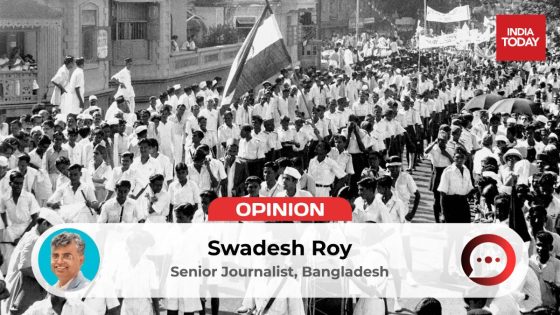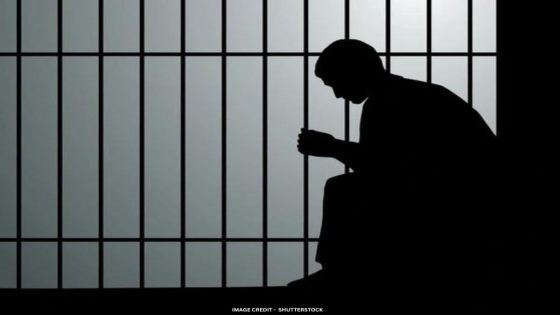In the recent Lok Sabha elections in India, Sandeshkhali, an island in the Sundarbans, became one of the central issues in West Bengal. I spent the whole day in Sandeshkhali, a part of Basirhat constituency. Here, BJP candidate Rekha Patra from Sandeshkhali was unique – a combination of firebrand pro-women and working-class leader.
She was also the third generation of refugees in West Bengal, where the most vulnerable people are the refugees who arrived and continue to do so from former East Bengal/East Pakistan and now Bangladesh.
According to a four-part documentary by Bangladesh’s legendary film director Tanvir Mokammel, the Jawaharlal Nehru government did not adequately handle this issue at that point of time. So, the refugees are still fighting for their existence.
In my ground report on Sandeshkhali, I tried to say that Rekha Patra could add some votes from women for her party, but I did not mention whether she had the chance of winning against the Trinamool Congress candidate, Haji Mohammad Yunus Molla. After reading the report, a prominent editor of an Indian media outlet, who is close to me, sent me a WhatsApp message saying, “She will lose.” I told him that I got that essence there.
It was a well-known area to me from the 60s. The Congress dominated the constituency at that time, and after that, it went to the Left-leaning allies. In the late 90s, I visited the area to observe a local government poll because election reporting is one of my favourite areas of journalism. However, I was shocked to see that the elections were worse than those held by our Bangladeshi military rulers.
This time, though, I witnessed a different atmosphere. In the Basirhat constituency, the election was held on June 1, but after the first and second phases of the election, people understood they could cast their vote after a long time.
However, by the different atmosphere, I was reminded of the pathetic history of Bengal, where all the political parties played religious cards, but some wore progressive clothes. I recognise these clothes very well.
I understood that all the Muslim minority votes in that area were intact in favour of the Trinamool Congress. Even those Muslims who came to the area after 1972, because they were accused of being anti-Liberation in Bangladesh, were not in favour of Rekha Patra, a third-generation refugee candidate, only because of her religion. Some of these Muslims still maintain two homes, one in Bangladesh and another in India. They are more Catholic than the Pope because, at the core of their belief, they are still living in the politics of the pre-Partition of the subcontinent. A well-known history that doesn’t need to be repeated.
To establish a modern free state from colonial Britain, politics started with inclusive, liberal thinking. But the ending was backwards with the use of religion. It was the madness of religious fundamentalism. All the political parties were part of it. There were no fresh hands. Rather, it was the same amount of dirt in every hand.
We were brought up reading the history of the struggle against the British and its conclusion with the partition. So, we know the dirty politics of that age and how much of it in the name of religion was passed on, and see the clean and so-called progressive clothes. Even in the context of Rekha Patra’s election, as a journalist, I got information from people in our fraternity that the leading gangster of that area, Sheikh Shahjahan, despite being in jail as an accused in smuggling and other criminal cases, was continuing his hold on the people.
Nowadays, all over the world, many ‘Shahjahans’ run their underground empires from the confines of a prison. Their main power is black money and political blessing. Sheikh Shahjahan achieved these two successfully.
Then, I chose the Lok Sabha constituency of Baharampur in the Murshidabad district of West Bengal because it is another constituency where the majority of voters are Muslims.
For a long time, their leader has been Adhir Ranjan Chowdhury, the prominent Congress leader. Adhir was very popular among Muslim voters. So, I chose that constituency before the elections. This time, West Bengal’s ruling party, the Trinamool Congress, nominated Yusuf Pathan – one of the former Indian national cricket team players. He is from Gujarat.
For this election, Trinamool’s slogan was: “Bangla is not for outsiders. It is only for Bengalis.” But the party fielded a Gujarati candidate there. Ironically, Mamata Banerjee, who always identifies her opponent as a Gujarati, fielded a Gujarati candidate with no prior connection to West Bengal politics.
I went to that constituency and spent 17 hours talking to voters. I could understand that the Hindu vote would consolidate in favour of the BJP candidate, who was also a prominent doctor in that area, and the Muslim vote would consolidate in favour of Yusuf Pathan. It was not because he was a star cricketer; his primary identity in the election was that he is a Muslim.
Trinamool Congress, the progressive party, nominated him as the candidate there only because of his Muslim identity. Moreover, in Basirhat and Baharampur, these Shahjahan and Pathan cards ultimately won because of religion.
I am reminded of a TV debate in which I participated after India abrogated Article 370, which gave special status to Jammu and Kashmir. I defended India’s move and said that it is never wise to reserve anything “special” in a democratic Constitution. Because the special constantly contradicts the democratic Constitution. In a democratic Constitution, all should be equal; nothing should be special.
Then, another panelist on the talk show told me that many of the progressive parties, including the Congress, were against the abrogation of Article 370, and then why was a secular person like me in favour of the move?
I gave the example of ethnic groups in our Chittagong Hill Tracts always demanding “special” status. I said I was not in favour of it because it does not follow the spirit of our Constitution, where Article Seven upholds the equality of every citizen, which is fundamental to Bangladesh’s Constitution.
Then, the panelist told me that many organisations, and even progressive ones, supported it. I answered that maybe they were progressive, but the result of their work was continuously deposited on account of the politics of separation, which may be in the name of religion, caste, colour or ethnicity.
And it is true that in this subcontinent, we always condemned the Muslim League for their religious politics before the partition and after it. We also accuse the BJP of playing religious politics. But if we analyse all the political parties in this subcontinent and their actions, every party is doing politics by using religion, caste, and ethnicity. So, all the clothes are identical, only the colour is different.
(Swadesh Roy is a state award-winning journalist and editor of Sarakhon and The Present World)
(Views expressed in this opinion piece are those of the author)
Source Agencies



